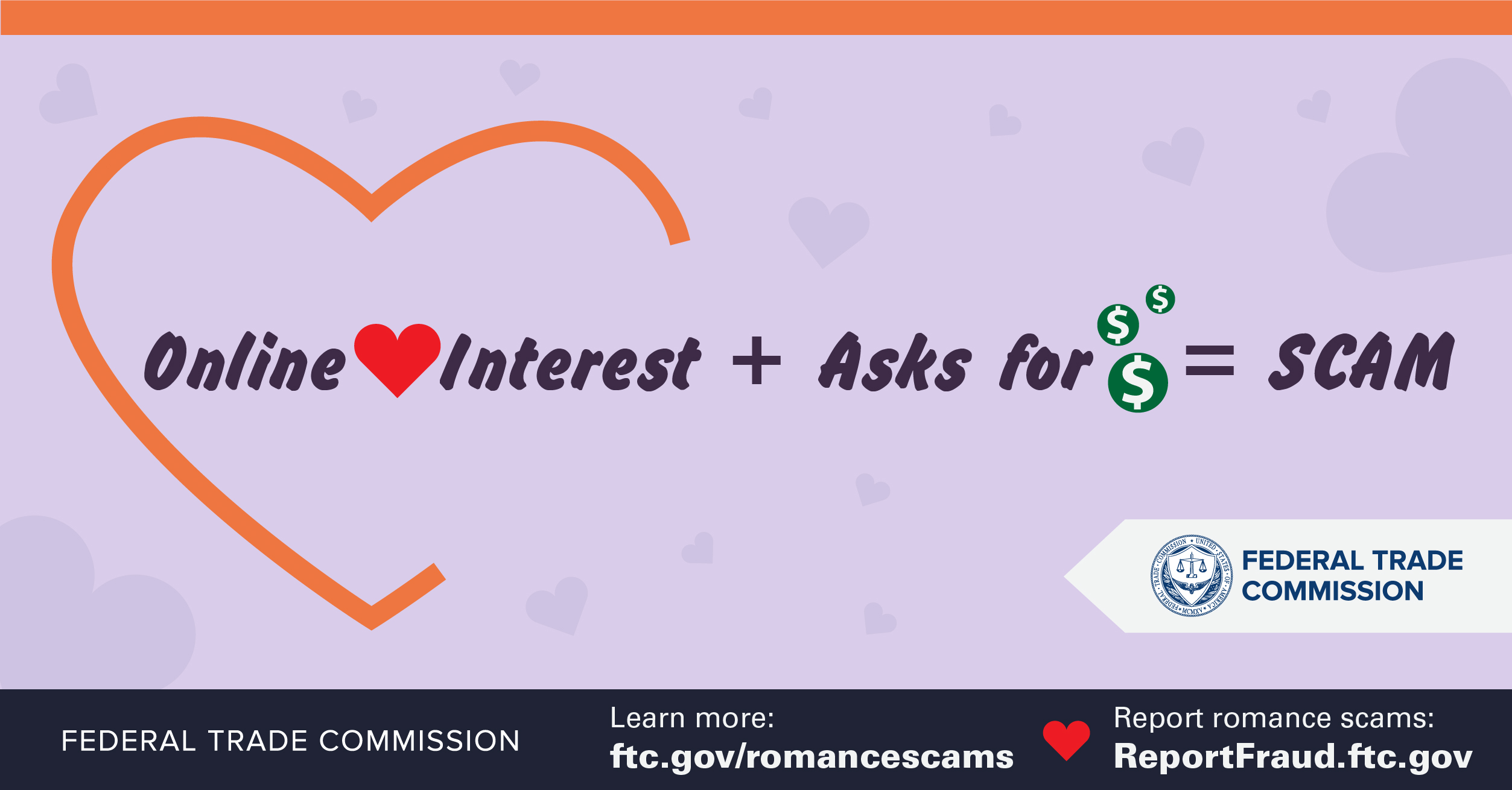It’s day four of National Consumer Protection Week and we’ve been discussing ways we can look out for each other during the pandemic. Today’s topic – romance scams. Check out and share this short video.
 Beyond the job losses and economic fallout of the pandemic, the loneliness and isolation brought on by our virtual lives has real consequences. This might explain why romance scams reached a record $304 million in losses reported to the FTC in 2020. That’s up about 50% from 2019.
Beyond the job losses and economic fallout of the pandemic, the loneliness and isolation brought on by our virtual lives has real consequences. This might explain why romance scams reached a record $304 million in losses reported to the FTC in 2020. That’s up about 50% from 2019.
Romance scams can start out in lots of ways – like when scammers create fake profiles on dating apps or social media. But these scams always end the same way – with a made up story about why the person needs money. Even if this scam might not affect you, it could be happening to someone you know.
So, as you check in on the health and safety of the people you care about, take a moment, pick up the phone and reach out to someone you might not have spoken with in a while. Check in with them, see how they are doing and listen to what they say – you might help them spot and avoid a romance scam.
Here are some things to keep in mind:
- If a friend or loved one mentions an online love interest, ask if they’ve met in person.
- If they haven’t met in person, and that love interest asks for money, that’s a scam. Period. No matter what story they tell — even if they send you money or gifts first.
- Only scammers tell people to send money by gift cards, money transfer, or cryptocurrency. If your friend sends any of these, they probably won’t get their money back.
- Report romance scams to the dating or social networking site, and to the FTC at ReportFraud.ftc.gov. And anyone who paid a romance scammer should also report it to the gift card, money transfer, or cryptocurrency platform.


In reply to Very common, especially from by Lucia
In reply to Lucia you have just described by Neveragain
In reply to This is happening to someone by ISeeYou
In reply to My wife’s grandmother is by D
The US Army has detailed warnings about people who pretend to be soldiers and copies of fake documents scammers have used. I understand this scammer is pretending to be a surgeon, not a soldier, but you might find some useful information on the Army sites, to show your wife's grandmother. She may be interested in these warnings from the Army.
Some scammers send money to people, and then tell them to deposit in in the bank, or send it to other people. The scammer may say to wire the money or buy gift cards. They don't reveal that the money they sent is really stolen. If you help a scammer move money, even if you don't know it was stolen, you could get in legal trouble for being a money mule.
You could contact the Adult Protective Services (APS) office in your wife's grandmother's home area. APS workers are social service workers who help people who are at risk of being financially exploited. You can search for APS services and other services on the ElderCare Locator, which is funded by the federal Administration on Aging.